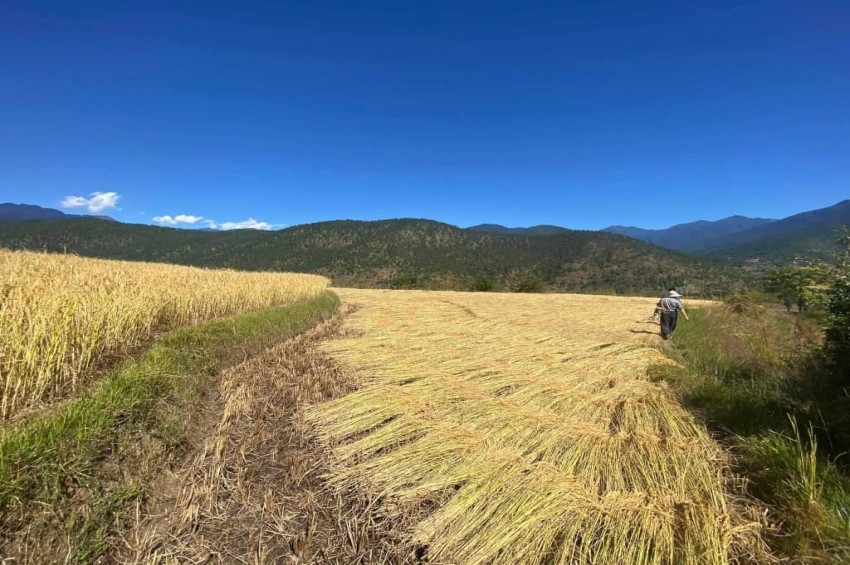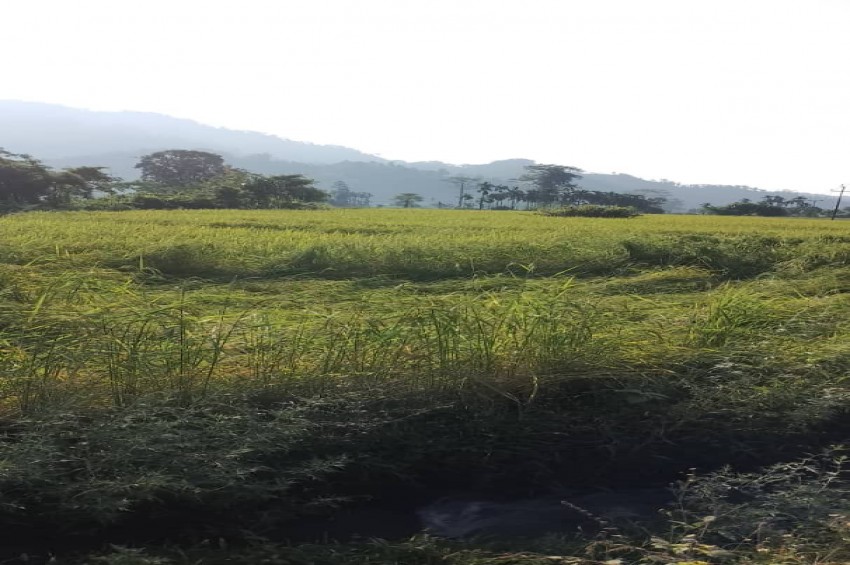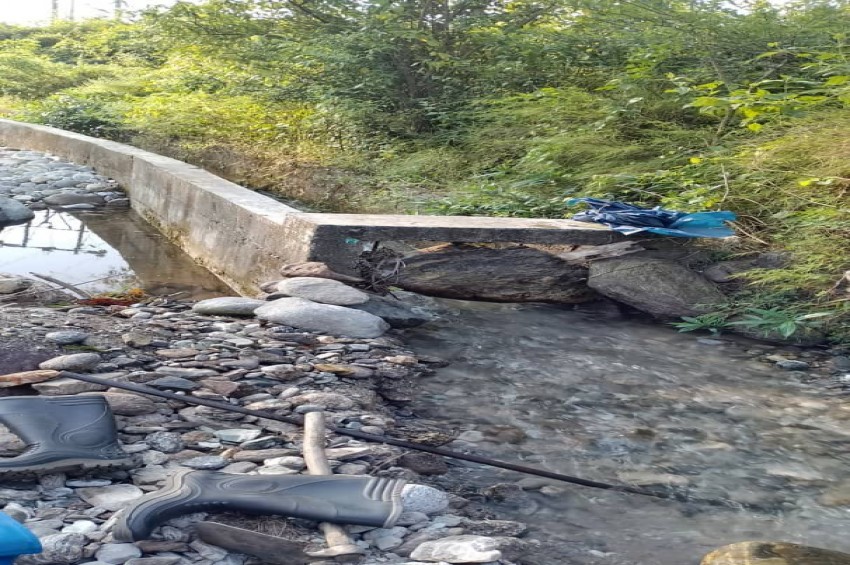BEA Facilitates Productive Meetings in Singapore, Malaysia, and Thailand to Enhance Business Opportunities for Bhutan
Bhutan's agricultural sector is experiencing a significant boost as its exports gain momentum in the markets of the Association of Southeast Asian Nations (ASEAN). The country's rich natural resources and commitment to sustainable farming practices have positioned Bhutan as a potential supplier of high-quality agricultural products to the region.
Under the Renewable Natural Resource Marketing Strategy 2021, the Royal Government of Bhutan has prioritized the promotion of agricultural exports, targeting high-value-added products for discerning customers in neighboring ASEAN countries. While previous information on market potential and demand for Bhutanese agricultural products in ASEAN was largely based on hearsay and informal communications, a recent comprehensive report by Business Engineers Asia (BEA) sheds light on the true opportunities that lie ahead.
The report, conducted under the auspices of the Japan International Cooperation Agency (JICA) Bhutan Office, aims to understand the actual situation of the supply chain, assess the potential of Bhutanese agricultural products, and identify potential partner companies. The study involved market visits and engagements with various stakeholders in Singapore, Malaysia, and Thailand, key markets within the ASEAN region.
BEA, with its expertise in the Singapore market and a network of partners in Malaysia and Thailand, undertook the survey to provide insights into the market landscape. Although Singapore remains BEA's core market, the secondary markets of Malaysia and Thailand were included in the report to present a more comprehensive overview of the opportunities available for Bhutanese agricultural exports.
The findings of the report highlight a growing market potential and demand for Bhutanese agricultural products in ASEAN countries. The unique selling points of Bhutan, including its pristine environment, sustainable farming methods, and commitment to quality, have resonated with consumers in the region. High-end customers in ASEAN nations are increasingly seeking out Bhutanese agricultural goods for their freshness, purity, and distinct flavor profiles.
The report also emphasizes the need for concerted efforts to fully capitalize on these opportunities. It identifies areas such as raising awareness about Bhutanese agricultural products, streamlining administrative processes for exports, and improving logistical infrastructure as key factors for further growth. The Royal Government of Bhutan, together with private sector stakeholders, is urged to adopt a coordinated approach to fully harness the potential of the agricultural sector and drive exports to new heights.
While there have been claims of market potential and demand for Bhutanese agricultural products in ASEAN countries such as Singapore, Malaysia, and Thailand, no confirmed studies or focused assessments had been conducted prior to BEA's report.
In a bid to provide a comprehensive and rewarding experience for participants, the Bhutan Export Association (BEA) recently organized a series of meetings in Singapore. Under a practical and balanced approach, the meetings aimed to cater to a broad range of participants, including local and foreign businesses, by addressing market entry support, logistics, sales channels, and stakeholder perspectives from both local and foreign government agencies.
The primary focus of these meetings was to offer practical insights and on-ground information, enabling differentiated channel management expectations. Participants had the opportunity to visit various establishments, including BEA's e-commerce management hub for fulfillment services. To provide a solid foundation and manage expectations, BEA also supported the delegation with a Masterclass Session on the Singapore market.
The itinerary of the delegation included visits to prominent supermarkets such as Little Farms, Cold Storage Fresh, Jason's, and NTUC Finest, as well as mid-range supermarkets like NTUC Fairprice. Additionally, the delegation explored the vibrant wet market in Little India. To gain a better understanding of the business landscape, they engaged with government agencies like Enterprise Singapore (ESG), Singapore Business Federation (SBF), and the Poland Investment & Trade Office (PAIH). The delegation also had the opportunity to interact with local businesses such as Sri Ambikas, EPIC Technology, Nature's Superfoods, SVASTI, and Quanfa Farms. Furthermore, they connected with ART Fruits, a foreign business with a base and operations in Singapore. The logistics aspect, including international freight forwarding, was addressed through discussions with Sparkle Logistics.
During the meetings, several crucial points were discussed, considering the diverse requirements and scope of support among the Bhutan delegation. BEA's key takeaway differed from JICA's (Japan International Cooperation Agency) list and primary request, as BEA took into account a broader perspective, encompassing not only agricultural products but also other sectors. The aim was to identify new opportunities in Singapore that were already existing opportunities in Bhutan.
Based on the delegation members' feedback, JICA's inputs, and discussions with external stakeholders, BEA's consolidated key takeaway for Singapore centered around three critical aspects:
Lack of Awareness - Product Profile: The meetings revealed a common concern among all participants - a lack of awareness regarding Bhutan's offerings in terms of agricultural products, both raw and processed. This absence of awareness stems from a deficiency in strategic and widespread promotion by Bhutan stakeholders, including government authorities and the private sector. Despite Bhutan's emphasis on agriculture practices, clean farming methods, and good governance, there is limited recognition of its products beyond neighboring countries like Bangladesh and India. To create opportunities, it is imperative to generate awareness about Bhutan's high-quality products and their unique stories.
Lack of Business Support Infrastructure - Administration and Logistics: Another common point raised during the meetings was the challenge related to administrative paperwork for exports, including certificates and laboratory reports. The absence of a streamlined process flow and clear documentation guidelines presents a hurdle for importers in Singapore, particularly when dealing with fresh produce or processed food products from Bhutan. The logistics infrastructure also requires improvement to enhance efficiency, as the currently limited transportation options result in higher costs. BEA recommends simple and cost-effective solutions, such as the establishment of refrigerated containers as cold storage points at the airport and having the agricultural certifying authority present at the point of export to ensure authenticity and prevent tampering. Furthermore, a strategic focus on air freight efficiency is crucial to increase export opportunities.
Lack of Direction - Coordinated Approach: Although both the government and private sector stakeholders demonstrated enthusiasm and plans to boost Bhutan's agricultural and processed food opportunities, a lack of coordination and efficiency was evident. There is a need to establish a dedicated Bhutan Export Team, comprising selected individuals from both sectors, to tap into their experiences, knowledge, and shared resources. This task force, supported by an external partner, would formulate a comprehensive Agriculture Production and Processed Food Exporting Plan for Bhutan. By bypassing bureaucratic obstacles and reporting to a single authority at the highest level, this coordinated approach would maximize the benefit for all stakeholders.
The meetings organized by BEA in Singapore served as a significant step in identifying the challenges and potential solutions to enhance Bhutan's business opportunities in the international market. With a focus on raising awareness, improving business support infrastructure, and fostering a coordinated approach, BEA aims to pave the way for a thriving export sector in Bhutan, highlighting the country's exceptional agricultural products and attracting buyers who appreciate its quality and story.
The report also sheds light on the lack of confirmed studies and comprehensive assessments in the past, indicating that much of the available information was based on hearsay, informal communications, and desktop research conducted by government officers. BEA's thorough approach and dedication to filling this knowledge gap will contribute to a more accurate understanding of the export potential for Bhutanese agricultural products.
Moving forward, BEA reiterates its core market focus on Singapore, while acknowledging the secondary market status of Malaysia and Thailand. Their network of partners in these countries, along with joint visits, has facilitated a well-rounded assessment of the export opportunities in the ASEAN region. By providing a report that encompasses the strengths and nuances of each market, BEA aims to support the Royal Government of Bhutan's Renewable Natural Resource Marketing Strategy 2021 and help unlock the untapped potential of Bhutanese agricultural products in the ASEAN region.
Bhutan's agricultural sector is experiencing a significant boost as its exports gain momentum in the markets of the Association of Southeast Asian Nations (ASEAN). The country's rich natural resources and commitment to sustainable farming practices have positioned Bhutan as a potential supplier of high-quality agricultural products to the region.
Under the Renewable Natural Resource Marketing Strategy 2021, the Royal Government of Bhutan has prioritized the promotion of agricultural exports, targeting high-value-added products for discerning customers in neighboring ASEAN countries. While previous information on market potential and demand for Bhutanese agricultural products in ASEAN was largely based on hearsay and informal communications, a recent comprehensive report by Business Engineers Asia (BEA) sheds light on the true opportunities that lie ahead.
The report, conducted under the auspices of the Japan International Cooperation Agency (JICA) Bhutan Office, aims to understand the actual situation of the supply chain, assess the potential of Bhutanese agricultural products, and identify potential partner companies. The study involved market visits and engagements with various stakeholders in Singapore, Malaysia, and Thailand, key markets within the ASEAN region.
BEA, with its expertise in the Singapore market and a network of partners in Malaysia and Thailand, undertook the survey to provide insights into the market landscape. Although Singapore remains BEA's core market, the secondary markets of Malaysia and Thailand were included in the report to present a more comprehensive overview of the opportunities available for Bhutanese agricultural exports.
The findings of the report highlight a growing market potential and demand for Bhutanese agricultural products in ASEAN countries. The unique selling points of Bhutan, including its pristine environment, sustainable farming methods, and commitment to quality, have resonated with consumers in the region. High-end customers in ASEAN nations are increasingly seeking out Bhutanese agricultural goods for their freshness, purity, and distinct flavor profiles.
The report also emphasizes the need for concerted efforts to fully capitalize on these opportunities. It identifies areas such as raising awareness about Bhutanese agricultural products, streamlining administrative processes for exports, and improving logistical infrastructure as key factors for further growth. The Royal Government of Bhutan, together with private sector stakeholders, is urged to adopt a coordinated approach to fully harness the potential of the agricultural sector and drive exports to new heights.
While there have been claims of market potential and demand for Bhutanese agricultural products in ASEAN countries such as Singapore, Malaysia, and Thailand, no confirmed studies or focused assessments had been conducted prior to BEA's report.
In a bid to provide a comprehensive and rewarding experience for participants, the Bhutan Export Association (BEA) recently organized a series of meetings in Singapore. Under a practical and balanced approach, the meetings aimed to cater to a broad range of participants, including local and foreign businesses, by addressing market entry support, logistics, sales channels, and stakeholder perspectives from both local and foreign government agencies.
The primary focus of these meetings was to offer practical insights and on-ground information, enabling differentiated channel management expectations. Participants had the opportunity to visit various establishments, including BEA's e-commerce management hub for fulfillment services. To provide a solid foundation and manage expectations, BEA also supported the delegation with a Masterclass Session on the Singapore market.
The itinerary of the delegation included visits to prominent supermarkets such as Little Farms, Cold Storage Fresh, Jason's, and NTUC Finest, as well as mid-range supermarkets like NTUC Fairprice. Additionally, the delegation explored the vibrant wet market in Little India. To gain a better understanding of the business landscape, they engaged with government agencies like Enterprise Singapore (ESG), Singapore Business Federation (SBF), and the Poland Investment & Trade Office (PAIH). The delegation also had the opportunity to interact with local businesses such as Sri Ambikas, EPIC Technology, Nature's Superfoods, SVASTI, and Quanfa Farms. Furthermore, they connected with ART Fruits, a foreign business with a base and operations in Singapore. The logistics aspect, including international freight forwarding, was addressed through discussions with Sparkle Logistics.
During the meetings, several crucial points were discussed, considering the diverse requirements and scope of support among the Bhutan delegation. BEA's key takeaway differed from JICA's (Japan International Cooperation Agency) list and primary request, as BEA took into account a broader perspective, encompassing not only agricultural products but also other sectors. The aim was to identify new opportunities in Singapore that were already existing opportunities in Bhutan.
Based on the delegation members' feedback, JICA's inputs, and discussions with external stakeholders, BEA's consolidated key takeaway for Singapore centered around three critical aspects:
Lack of Awareness - Product Profile: The meetings revealed a common concern among all participants - a lack of awareness regarding Bhutan's offerings in terms of agricultural products, both raw and processed. This absence of awareness stems from a deficiency in strategic and widespread promotion by Bhutan stakeholders, including government authorities and the private sector. Despite Bhutan's emphasis on agriculture practices, clean farming methods, and good governance, there is limited recognition of its products beyond neighboring countries like Bangladesh and India. To create opportunities, it is imperative to generate awareness about Bhutan's high-quality products and their unique stories.
Lack of Business Support Infrastructure - Administration and Logistics: Another common point raised during the meetings was the challenge related to administrative paperwork for exports, including certificates and laboratory reports. The absence of a streamlined process flow and clear documentation guidelines presents a hurdle for importers in Singapore, particularly when dealing with fresh produce or processed food products from Bhutan. The logistics infrastructure also requires improvement to enhance efficiency, as the currently limited transportation options result in higher costs. BEA recommends simple and cost-effective solutions, such as the establishment of refrigerated containers as cold storage points at the airport and having the agricultural certifying authority present at the point of export to ensure authenticity and prevent tampering. Furthermore, a strategic focus on air freight efficiency is crucial to increase export opportunities.
Lack of Direction - Coordinated Approach: Although both the government and private sector stakeholders demonstrated enthusiasm and plans to boost Bhutan's agricultural and processed food opportunities, a lack of coordination and efficiency was evident. There is a need to establish a dedicated Bhutan Export Team, comprising selected individuals from both sectors, to tap into their experiences, knowledge, and shared resources. This task force, supported by an external partner, would formulate a comprehensive Agriculture Production and Processed Food Exporting Plan for Bhutan. By bypassing bureaucratic obstacles and reporting to a single authority at the highest level, this coordinated approach would maximize the benefit for all stakeholders.
The meetings organized by BEA in Singapore served as a significant step in identifying the challenges and potential solutions to enhance Bhutan's business opportunities in the international market. With a focus on raising awareness, improving business support infrastructure, and fostering a coordinated approach, BEA aims to pave the way for a thriving export sector in Bhutan, highlighting the country's exceptional agricultural products and attracting buyers who appreciate its quality and story.
The report also sheds light on the lack of confirmed studies and comprehensive assessments in the past, indicating that much of the available information was based on hearsay, informal communications, and desktop research conducted by government officers. BEA's thorough approach and dedication to filling this knowledge gap will contribute to a more accurate understanding of the export potential for Bhutanese agricultural products.
Moving forward, BEA reiterates its core market focus on Singapore, while acknowledging the secondary market status of Malaysia and Thailand. Their network of partners in these countries, along with joint visits, has facilitated a well-rounded assessment of the export opportunities in the ASEAN region. By providing a report that encompasses the strengths and nuances of each market, BEA aims to support the Royal Government of Bhutan's Renewable Natural Resource Marketing Strategy 2021 and help unlock the untapped potential of Bhutanese agricultural products in the ASEAN region.













